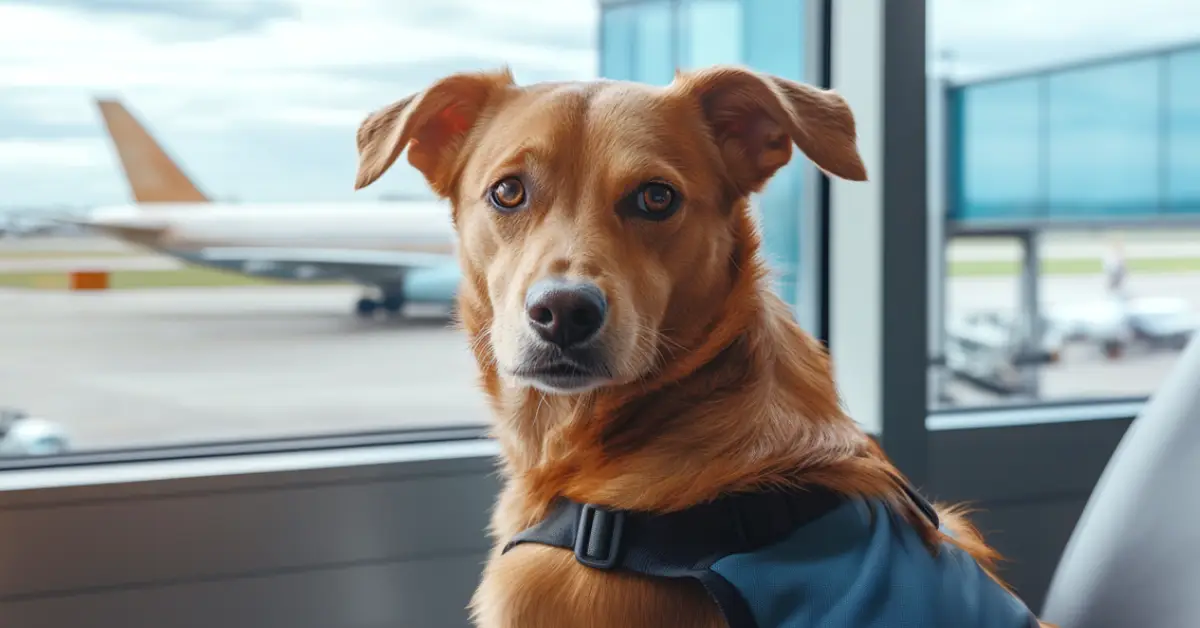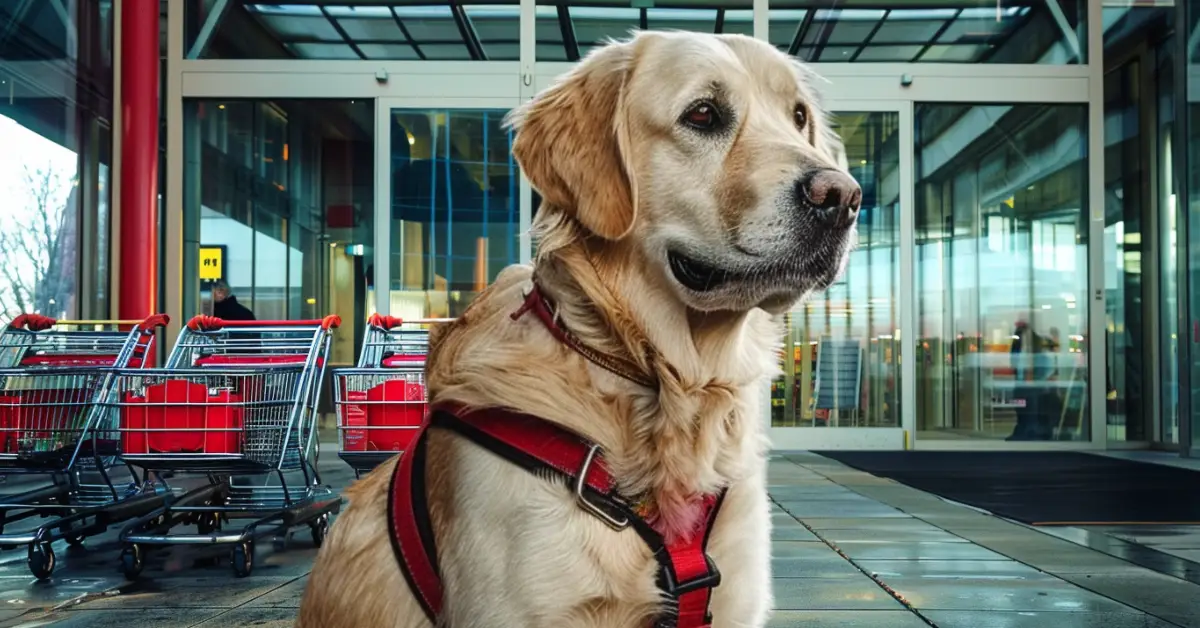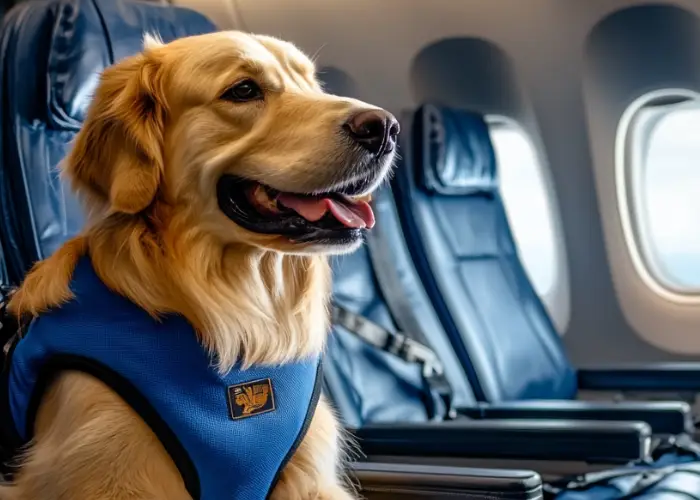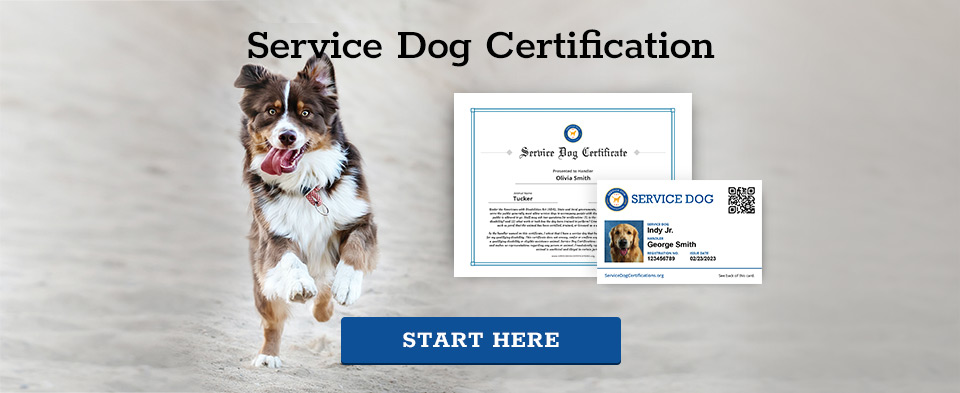The Air Carrier Access Act and Service Dogs

If you rely on a service dog, you need to know about the Air Carrier Access Act (ACAA). The ACAA is a U.S. federal law that gives you the right to bring your service dog in the plane cabin on all flights to, from, and within the United States. The ACAA, along with HUD’s housing rules and the Americans with Disabilities Act, form the legal basis for service dog owner rights in the United States.
This guide explains everything you need to know about the ACAA, including how it applies to service dogs, recent rule changes for emotional support animals, and what to do if you encounter issues with an airline.
What is the Air Carrier Access Act (ACAA)?
The ACAA was passed to ensure that people with disabilities are treated fairly and respectfully when they fly. This law requires airlines to provide special accommodations for disabled people who need service dogs.
If you’re flying with a service dog, the ACAA guarantees your right to bring your trained service dog into the aircraft cabin without paying extra fees. The ACAA also exempts you from weight and breed restrictions, meaning larger dogs are fine to board the cabin with you.
Here are some key points about the ACAA:
- The ACAA applies to all airlines operating in U.S. airspace, covering domestic and international flights that touch U.S. soil.
- It prohibits airlines from discriminating against travelers with disabilities, including those who have met service dog requirements.
- The ACAA is enforced by the Department of Transportation (DOT), which issues guidelines and manages complaints.
Service Dogs on Planes: What’s Currently Allowed
Service dogs have a special status under the ACAA, allowing them to accompany their handlers in the airplane cabin.
For service dog handlers, the following rules currently apply:
- Before boarding, you must complete and submit the DOT’s Service Animal Form to your airline.
- Only trained service dogs are allowed to fly in the cabin. This means the dog must be trained to perform specific tasks related to the handler’s disability.
- Passengers are limited to a maximum of two service dogs each.
- Dogs must fit comfortably in the handler’s foot space, under the seat, or on the passenger’s lap (if the dog is small enough and permitted by the airline).
- Airlines cannot charge fees for service dogs traveling in the cabin.
Check out this link for a complete guide on flying with a service dog.
The ACAA and Emotional Support Animals: What Changed?
While emotional support animals (ESAs) were once also given special status under the ACAA, regulatory updates changed their classification. As of December 2020, ESAs are no longer recognized for special privileges under the ACAA. U.S. airlines now treat emotional support animals just like regular pets.
The rule changes mean that ESAs:
- Can be restricted to travel as pets, with airlines free to enforce pet fees and size restrictions.
- Do not have guaranteed access to the cabin and may be required to remain in pet carriers for the duration of the flight.
- May face breed or species restrictions based on airline policies.
What to Do if You Face Issues under the ACAA
When flying with a service dog, airlines are required to:
- Offer assistance during boarding, deplaning, and throughout the flight if requested.
- Make most seats available to you and your service dog, except for emergency exit rows.
- Ensure a Complaint Resolution Official (CRO) is available to address any issues related to your service dog’s access.
If you run into issues with your service dog at the airport or on the plane, here are some steps you can take:
- Request a CRO
Every airline has CROs trained to handle disability-related issues. Request their assistance if there are problems with service dog policies. - Document Everything
Take notes on interactions and record the names of airline staff involved, in case you need to file a complaint. - Submit a DOT Complaint
If unresolved, submit a complaint to the DOT’s Aviation Consumer Protection office within 90 days of your flight. - Keep All Paperwork
From the DOT form to any medical records, keep copies of all documentation relevant to your service dog.
Common Questions About ACAA Rules for Service Dogs
- Can airlines refuse to allow my service dog?
Yes, but only under certain conditions. If your dog behaves aggressively, is not housebroken, poses a direct threat to other passengers, or is not yet fully trained, the airline can deny access.
- Do I need a special ID for my service dog?
No specific ID is needed, but having a voluntary service dog ID can help with airline staff and passengers immediately recognizing your dog as a service animal.
- Are international flights any different?
Yes, many international flights have additional rules based on the destination country. Always check entry requirements for your dog, as some countries may require health certifications, vaccinations, or even quarantine.
- When should I arrive at the airport?
Arrive 2-3 hours before your flight. This gives you enough time for check-in, security, and document checks.
About the Author: The writing team at Service Dog Certifications is made up of folks who really know their stuff when it comes to disability laws and assistance animals. Many of our writers and editors have service dogs themselves and share insights from their own experiences. All of us have a passion for disability rights and animals.
Latest Posts

Can you bring a service dog to a museum?
Yes, you can bring your service dog to the museum! All the major U.S. museums welcome guests with service animals in accordance with the Americans with Disabilities Act (ADA). There are some areas, however, that might be off-limits. Here’s what you should know if you plan to spend a day at the museum with your […]

Read More

How to Bring a Service Dog to Six Flags Magic Mountain
Service dogs are welcome at Six Flags Magic Mountain so long as they are, according to Six Flags, “trained to do work or perform tasks for people with disabilities.” Of course, your dog must be housebroken and remain on a leash or harness and under your control while at the park — and the park […]

Read More

When Stores Can Refuse Your Service Dog
According to the Americans with Disabilities Act (ADA), service dogs should be allowed into any store most of the time. A store owner can legally exclude a service dog if they are actively growling, snapping at, or frightening customers, or if the dog is obviously out of the control of its owner. Ordinary behaviors — […]

Read More

